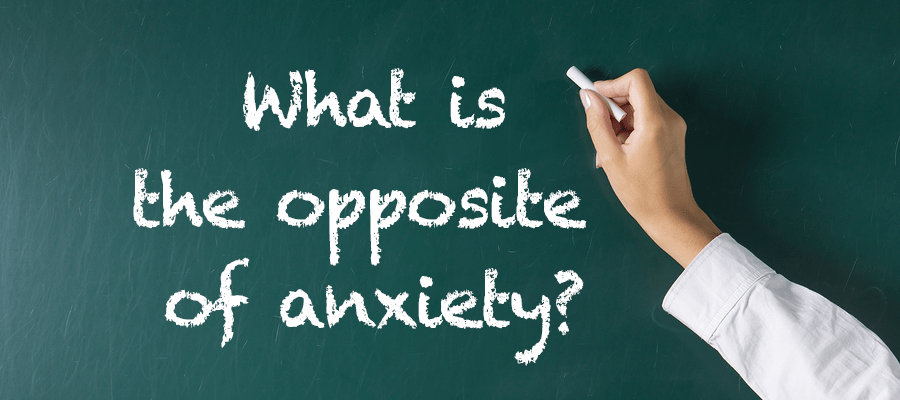
What Is The Opposite of Anxiety?
For someone who specialises in helping people with anxiety you would think that I would know the answer to the question ‘What is the opposite of anxiety?
I had to ponder this question for some time before realising I didn’t have a definitive answer.
Then I thought about my other specialist subject, depression, and it occurred to me that this doesn’t have a definitive opposite either but is better summed up with expressions such as happy, motivated, in control, engaged with life, living in the moment and excited, which are all challenging states of being for someone who has depression.
So, as anyone would these days I asked Google.
It was interesting that one of the sites I looked at said “a variety of words whose meaning is nearly the opposite of anxiety.” • apathy• assurance• calmness• carelessness• confidence• ease• light-heartedness• nonchalance• satisfaction• tranquillity‘ are nearly’ the opposite, but not exactly, so the question remained of what is the opposite of anxiety. Surprisingly I found many articles addressing the same question, it seems I’m not the only one trying to figure this out.
From the list above ‘confidence’ is the closest to a definition that resonates with me, but I would like to share with you the concluding paragraph of one of the blog posts I read which said
“The opposite of anxiety is trust: trust in our core strengths, trust in our resilience, trust in the process, and trust even in the discomfort of our anxious emotions to deliver important messages.”
(https://blogs.psychcentral.com/stress-better/2016/07/whats-the-opposite-of-anxiety/)
Another definition that was popular was
“The opposite of anxiety is mindfulness”
Personally I think it’s more accurate to describe mindfulness as an antidote to anxiety.
When in clinic, seeing a client for the first time we have a standard set of exploratory questions to establish if we can help and how. The first question is always “How can I help?” (To be expected perhaps!) To which we usually learn the nature of the problem such as ‘I have anxiety’ or along the lines of ‘I’ve been diagnosed with General Anxiety Disorder’. Then to deepen our understanding of exactly what form their anxiety takes and to discover what the client would like to achieve or change, our follow up question is “If hypnotherapy was to help with your anxiety, how would that show”, in other words, what would be different? ”Are the answers to this question more revealing in uncovering the opposite of anxiety?
Sometimes people would ponder that question, but often they would know immediately what they want to change
“I wouldn’t have panic attacks’‘
“I would be able to take my children to school”
“I would feel in control”
“I would be able to go out with friends in the evening”
“I wouldn’t worry about getting ill/cancer/what people think of me/losing my job” etc
“I wouldn’t be avoiding everything”
I came to the conclusion that anxiety and depression are both concepts, words that encompass a much more detailed description which incorporates individual variations and differences within the understanding of the term.
If this is the case, then perhaps the opposite of a concept is also an a concept with individual differences and so there isn’t a definitive opposite that everyone with anxiety is looking to achieve.
For the person who fears talking to strangers in a social situation, perhaps bravery is the opposite, whereas, the person who has panic attacks might consider being calm as the opposite.
I had to conclude that there is not right or wrong answer to the opposite of anxiety, just whatever it means to you.
I would be very interested to know that the opposite of anxiety is to you or if you can do any better in coming up with a definition, please do leave your ideas below.
1 Comment
Submit a Comment
If you have an inspiring story or something to share that you think will help others wrestling with anxiety or depression, I would love to hear from you. If you have found in particular strategy helpful, chances are that someone else will also benefit, spread the word, share the love and help the fight back against the epidemic of anxiety and depression spreading across the western world.
Wishing you health, wealth, happiness and success

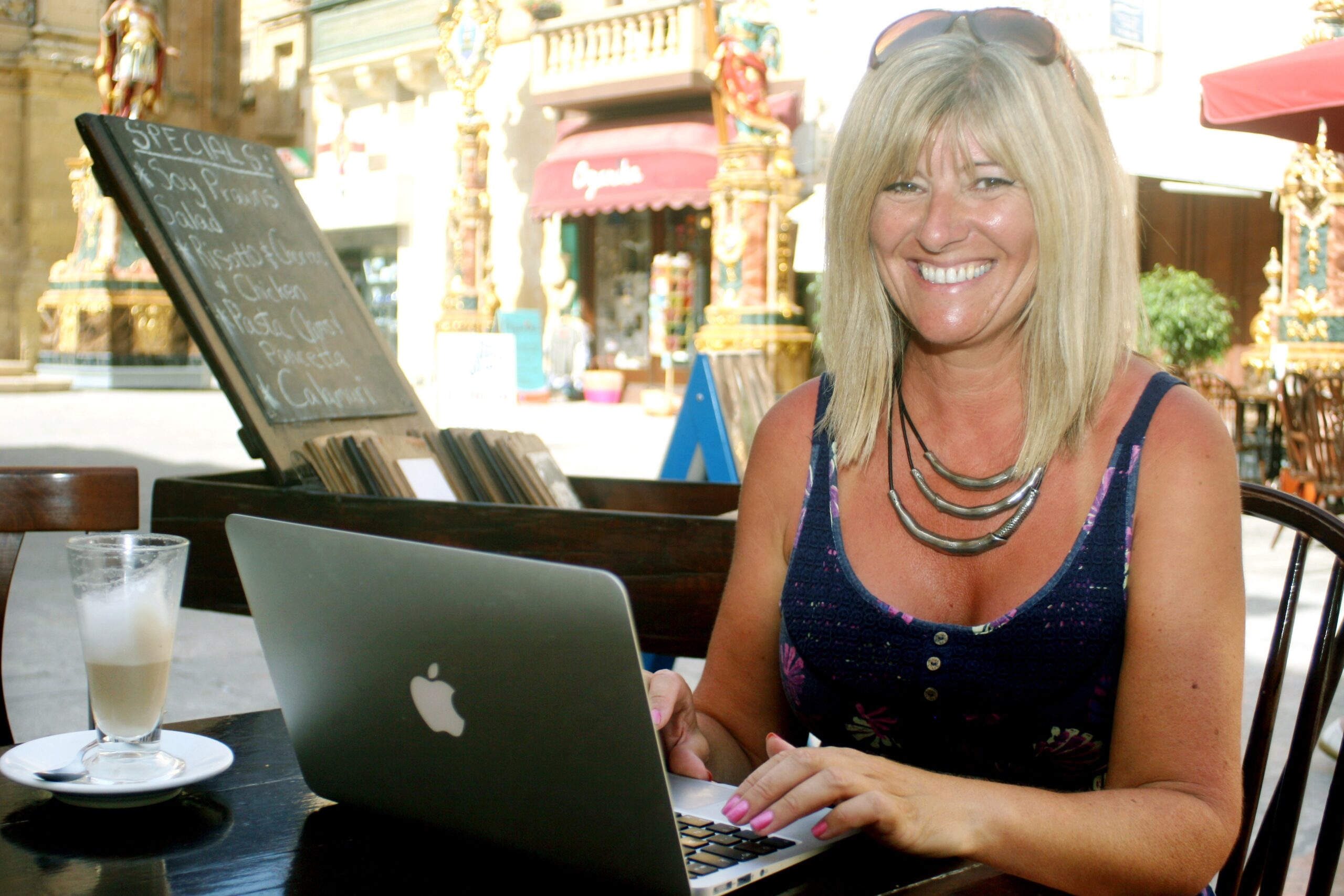
Arrange a Free Initial Consultation in Cirencester, Exeter, Plymouth, Swindon or by Skype
Shop Online for Courses, eBooks and Self Hypnosis Tracks to help anxiety and depression
Random Act of Kindness (Enclosed)
This is a personal blog about a really crappy couple of weeks I’ve had that I would like to share with you because it all turned around due to one random act of kindness, read it, I will do a random act of kindness for you.
My Top 6 Self Help Books Review
People often ask me which book they need for depression, grief, anger, anxiety etc so I thought I would do something different today and review the top 6 books that I recommend for helping with an array of emotional conditions.
Subconscious conflicts
Does what you think you want to happen never seem to happen and you end up sabotaging your own thoughts and not doing the things you need to do to achieve desired results or changes? It could be that your subconscious mind is not aligned with your conscious mind.
Why you need to focus on what you DO want
Your mind listens to you, when you are thinking you are giving your subconscious mind instructions of what to notice or focus on, in other words, what to ‘filter in’ to your world, so if you focus on what you DONT want, for example, bills, sickness, anxiety you are going to attract more of that into your life. Understand what effect focusing on the wrong things has on your life.
Why do people turn their back on you when you have depression?
Sadly people with depression can become more and more isolated as the depression depends it often seems as if friends and family stop calling, visiting or inviting the person suffering from depression to social events. To the afflicted person it can appear as if everyone is turning their back on them, but why is this?
How did I cope ….? Guest Post
New Year, New Hope A new year is a time of hope, new resolutions and energy to resolve issues and change unwanted or unhappy circumstances, so to kick of the new year, I've decided to start with a collective of posts from our wonderful contacts at Old Town...
Disclaimer | Privacy Policy | Terms and Conditions
Copyright © OLD TOWN HYPNOTHERAPY 2016 All Rights Reserved


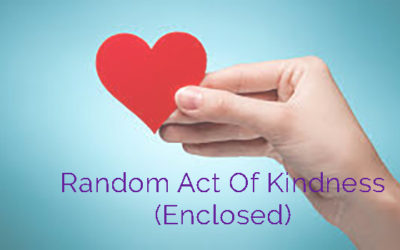
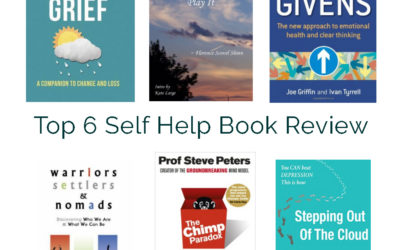
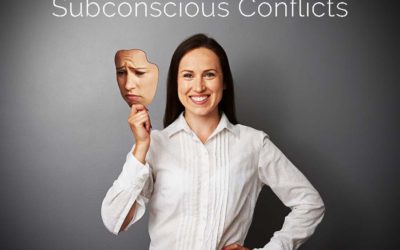


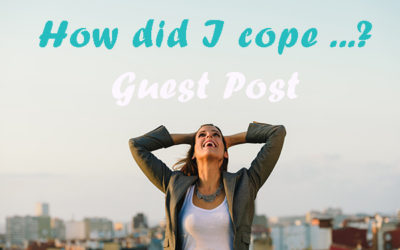
i like to think the opposite to my anxiety would be comfort and safety.i often say to myself insted of anxiety i would like to feel comfortable because anxiety causes so much discomfort.a therapist once asked me how i would like to feel instead of anxiety and my answer was simple,i would like to feel comfortable,comfortable within myself,also feeling safe was another one of my answers.